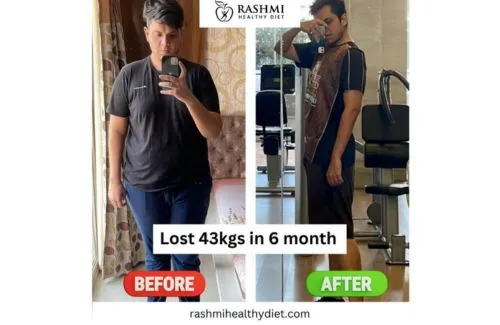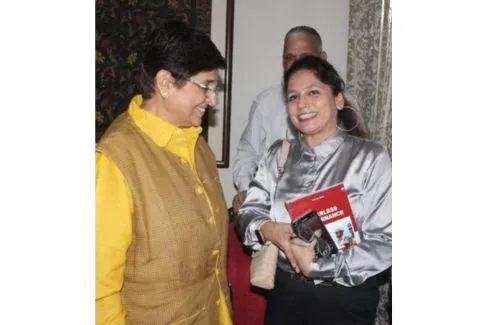Rashmi Biyani is a nutritionist who has been professionally working towards the improvement of the health of people through right selection of diet.
PC: How has been your childhood as a girl child?
RB: My girlhood was marked by love and support, fostering a foundation for well-being. Surrounded by a nurturing environment, I developed resilience and a deep appreciation for health. These early experiences inspire my work as a nutritionist, guiding others toward balanced lifestyles and informed choices for overall wellness.
PC: Why did you choose nutrition as a subject to study?
RB: I chose to study nutrition because I’m intrigued by how food affects our health. I want to help people make better choices for their well-being. Being a nutritionist lets me share knowledge and guide others toward healthier lives through smart food decisions.
PC: How did your journey started as a nutritionist?
RB: I became a nutritionist because I was curious about how food affects our health. I studied nutrition, and gained practical experience. Now, I use what I’ve learned to help people make healthy choices for a better life.

PC: What were the hurdles you had to face as an entrepreneur or nutritionist?
RB: Starting out, getting clients and proving myself in a competitive market was hard. Keeping up with changing nutrition trends and explaining things clearly to clients were ongoing challenges. I had to stay persistent, keep learning, and find new ways to offer helpful services.
Also Read: Who Is Better In Human Resources Female or Male?
PC: What is the role of a nutritionist in promoting a healthy lifestyle?
RB: A nutritionist helps people live healthier by giving personalized advice on what to eat. They create balanced meal plans, explain why good nutrition matters, and support individuals in making lasting changes to their lifestyles. This guidance aims to improve overall well-being and prevent health issues.

PC: How do you assess a client’s nutritional needs and create a customized diet plan?
RB: Assessing a client’s nutritional needs involves understanding their health goals, medical history, lifestyle, and dietary preferences. I use this information to identify areas for improvement and address specific concerns. Creating a customized diet plan involves designing meals that meet nutritional requirements while aligning with the client’s preferences, making it practical and sustainable for them to follow. Regular feedback and adjustments ensure ongoing success.
PC: Can you explain the importance of macronutrients and micronutrients in a balanced diet?
RB: Certainly! Macronutrients and micronutrients are essential for a balanced diet.
Macronutrients:
Carbohydrates: Provide energy for daily activities.
Proteins: Build and repair tissues, support immune function.
Fats: Essential for hormone production, cell structure, and energy storage.
Micronutrients:
Vitamins: Support various bodily functions and prevent deficiencies.
Minerals: Important for bone health, nerve function, and fluid balance. Balancing both ensures optimal health, energy levels, and overall well-being.
PC: How do you stay updated with the latest nutritional research and guidelines?
RB: I keep up with the latest nutrition info by reading science journals, attending conferences, and taking courses. I also connect with other professionals and follow trusted nutrition sources online. This helps me stay informed about the newest research and guidelines in a straightforward way.
PC: Can you provide an example of a successful case where your dietary recommendations led to significant health improvements for a client?
RB: Certainly! I once worked with a client aiming to manage to reverse diabetes and stop the medicine for cholesterol. Through personalized dietary changes, emphasizing balanced meals and portion control, the client was no longer in insulin and medicine for cholesterol. Additionally, adopting nutrient-dense foods boosted energy levels and overall well-being. This success highlighted the effectiveness of tailored nutrition plans in achieving specific health goals.

PC: How can you link nutrition to women empowerment?
RB: Good nutrition empowers women by boosting their health, energy, and confidence. When women have access to nutritious food and understand its importance, they can better focus on education, work, and leadership. This creates a positive cycle where healthier women contribute more actively to their communities, promoting empowerment and equality.
PC: Your message to women empowerment?
RB: Dear women, you are strong and capable. Support each other, take care of yourselves, and believe in your potential. Education and unity make you even more powerful. Your voice is important, so let it be heard. You have the ability to create positive change and a future where everyone is treated equally. Keep empowering each other!
Rashmi Biyani and her journey speaks of the potentialities women have in them to change themselves and the world!




One Response